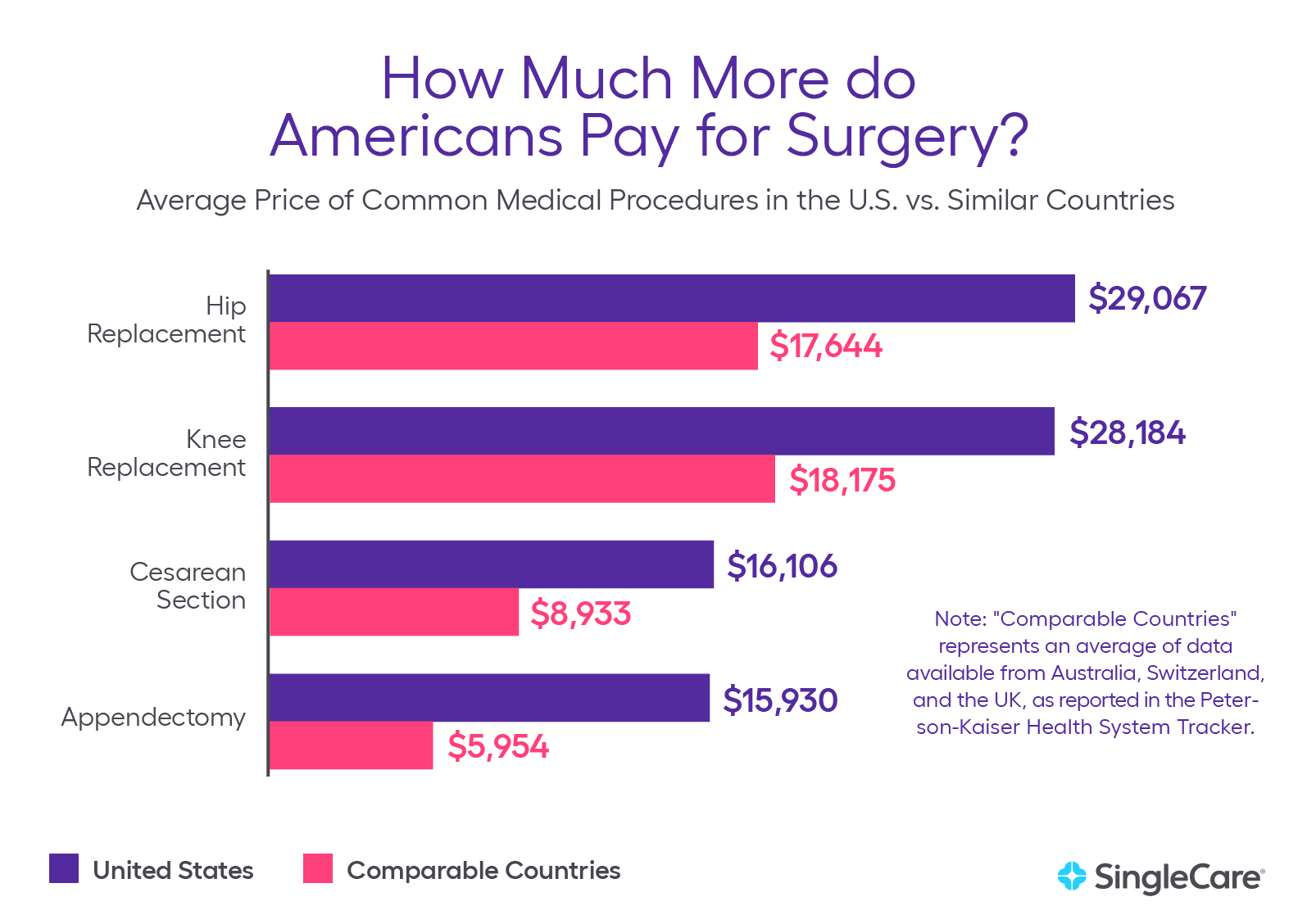anyone else strongly consider leaving due to garbage US healthcare?
Anonymous
NP who thinks OP is ridiculous in thinking it's better in Europe - BUT, the above is a joke. The people of Europe stick the United States with all of their defense costs AND the costs of drug and device technology and clinical trials to advance their medicine. |
Anonymous
yes, that's the point. Non urgent issues don't get priority, but if you have urgent issues, it will get addressed, for free. The other point is that there are millions of people in the US who can't get hip replacement surgery even if there is no long wait time because these folks don't have insurance. So, even if the wait time in the US is shorter, medical care is not accessible to millions of people. Additionally, millions file for bankruptcy every year due to medical costs. That doesn't happen in the UK. Most of you people on here have employer sponsored medical insurance, so you have no idea how painful (pun intended) it is to pay for private medical care. But you are just a hope and prayer away from losing your employer sponsored health insurance if you get laid off, which thousands of people have been these past few months. They may find a new job, or they may not. But, it's ridiculous for people to have to find any job simply for health insurance. https://www.singlecare.com/blog/medical-debt-statistics/ I urge you to read the part of the average costs in the US vs other countries. 
|
Anonymous
Pharma likes only psychiatrists because regular therapists can’t prescribe drugs. |
Anonymous
If your SIL received cancer care in the UK "quickly," she's lucky. The goal for beginning treatment for cancer in the UK is one month after diagnosis. A significant number of people wait three months or more. This is part of why the US has better survival rates for almost all cancers than the UK. https://www.theguardian.com/society/2022/mar/10/nhs-waiting-times-for-cancer-care-in-england-now-longest-on-record https://www.nuffieldtrust.org.uk/resource/cancer-waiting-time-targets#background Between 2009 and 2014, the percentage of people with suspected cancer having their first consultant appointment within two weeks of an urgent GP referral fluctuated at around 95%. From 2015 to 2018, average yearly performance dropped slightly to about 94%, after which it has declined year on year. The two-week standard has been missed for the last four years. In Q1 2022/23 (April to June 2022), 80% of patients had their first consultant appointment within two weeks. For patients with breast symptoms (where cancer is not initially suspected), performance against the two-week wait target has declined at a faster rate. Between Q1 2017/18 and Q1 2022/23, the percentage of patients with breast symptoms seen by a consultant within two weeks of an urgent GP referral fell from 91% to 67%. (and that's treatment after diagnosis -- diagnosis is seeing delays, as well. Can you imagine having to wait more than a month to find out if your test for cancer is positive?) In April 2020, a new faster diagnosis standard was introduced, with the aim of detecting cancer faster in order to improve cancer survival rates. A target was set which stated that by Q3 2021/22, at least 75% of patients should be told whether or not they have cancer within 28 days of an urgent referral from their GP or a cancer screening programme. The NHS delivery plan pushed the ambition to meet the target back to March 2024. Since April 2021, when data against this target began to be published, the 75% target has not been met nationally. In June 2022, 70% of patients waited less than 28 days to be told whether or not they have cancer. |
